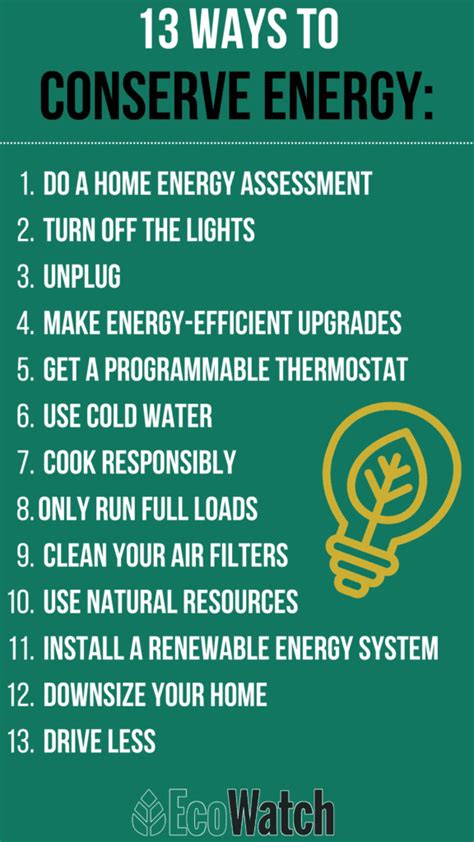Energy control is a critical aspect of managing our daily lives, from reducing our environmental footprint to saving on utility bills. With the increasing awareness of climate change and the importance of sustainable living, understanding how to control energy consumption has become more crucial than ever. In this article, we will delve into five effective ways to achieve energy control, exploring both the theoretical foundations and practical applications of these methods.
Key Points
- Implementing energy-efficient appliances and lighting to reduce consumption
- Utilizing smart home technology for real-time energy monitoring and control
- Optimizing heating and cooling systems for seasonal energy savings
- Integrating renewable energy sources into daily energy plans
- Practicing energy-conscious behaviors through lifestyle adjustments
Understanding Energy Consumption Patterns

To effectively control energy, it’s essential to understand how and where energy is consumed in our daily lives. Energy consumption patterns vary significantly depending on factors such as geographic location, climate, and personal habits. For instance, in colder climates, heating systems are a major source of energy consumption, whereas in warmer climates, cooling systems dominate the energy usage landscape. By recognizing these patterns, individuals and organizations can target their energy control efforts more effectively.
The Role of Technology in Energy Control
Technology plays a pivotal role in achieving energy control. Advances in smart home technology, for example, have enabled real-time monitoring and control of energy consumption. Smart thermostats can learn a household’s schedule and preferences to optimize heating and cooling, reducing unnecessary energy waste. Similarly, smart lighting systems can adjust brightness and color temperature based on the time of day and ambient light conditions, further reducing energy consumption.
| Energy-Saving Technology | Average Energy Savings |
|---|---|
| Smart Thermostats | 10-15% |
| LED Lighting | 50-70% |
| Energy-Efficient Appliances | 20-30% |

Practical Strategies for Energy Control

Beyond technological solutions, practical strategies can also significantly impact energy control. Simple actions such as adjusting thermostat settings, using power strips to plug in electronics, and upgrading to energy-efficient appliances can collectively make a substantial difference. Moreover, integrating renewable energy sources, such as solar or wind power, into one’s energy plan can dramatically reduce reliance on fossil fuels and lower energy bills.
Behavioral Adjustments for Energy Efficiency
Behavioral adjustments are a crucial aspect of energy control. Practices such as turning off lights, electronics, and taps when not in use can save a significant amount of energy. Additionally, adopting habits like air drying clothes instead of using a dryer, and adjusting daily routines to utilize natural light and heat can further contribute to energy efficiency. These small changes, when combined with technological solutions, can lead to substantial reductions in energy consumption.
As we move forward in our quest for sustainable living, understanding and implementing effective energy control strategies will become increasingly important. By combining technological innovation with behavioral changes and practical strategies, we can significantly reduce our energy footprint, contributing to a more environmentally friendly and economically sustainable future.
What are the most effective ways to control energy consumption at home?
+Effective ways to control energy consumption at home include using energy-efficient appliances, adjusting thermostat settings, utilizing smart home technology, and practicing energy-conscious behaviors such as turning off lights and electronics when not in use.
How can I reduce my energy bills through energy control?
+Reducing energy bills can be achieved by implementing energy-efficient practices and technologies. Upgrading to energy-efficient appliances, using power strips, and optimizing heating and cooling systems are just a few strategies that can lead to significant savings on energy bills.
What role does renewable energy play in energy control?
+Reneable energy sources, such as solar and wind power, play a critical role in energy control by offering alternatives to fossil fuels. Integrating these sources into one’s energy plan can significantly reduce energy consumption from non-renewable sources, contributing to a more sustainable energy future.



